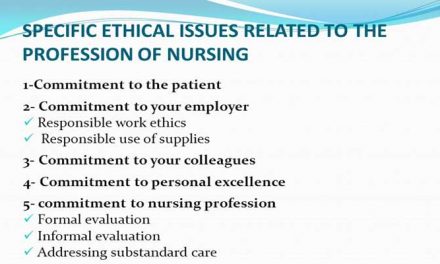A holistic nurse is a licensed nursing practitioner practicing an approach of healing a whole person. It takes care of the mind, body, spirit, and emotion. Holistic nursing specializes in treating a patient as a whole rather than the symptoms of the present condition.
What Does a Holistic Nurse Do?
A holistic nurse that some call complementary health nurse should be a certified registered nurse by the authorized board. These nurses subscribe to a philosophy of living and being grounded in caring, relationship as well as interconnectedness.
They integrate the modalities of holistic healing to daily life and clinical practice. Holistic nursing encourages nurses to integrate the following:
- Self-care
- Self-responsibility
- Spirituality
- Reflection of lives
Unlike traditional nursing, holistic nurse employs alternative medicine forms together with conventional western medicine during their practice. It might include dietary advice, therapeutic massage, and acupuncture and mediation therapy. Those who practice holistic nursing will often encourage the patients to maintain a proper balance of the body, mind, and spirit.
Education to Become a Holistic Nurse
Holistic nurses like registered nurses should attend a nursing school at a college or university to get an ADN or BSN degree. After getting one of these degrees, nurses become eligible to sit for a licensure examination. It is a requirement to pass the licensure examination before getting a permit to work. A BSN and ADN can both lead to an entry-level position. Most employers still favor candidates with a bachelor’s degree. An education from a holistic nursing school is a way to earn a holistic nursing degree. Holders of BSN degree or those who already are practicing can use these as qualifications to augment existing skill set.
All the nurses attending a holistic nursing school must complete basic science, nursing practice, and health policy courses. The course will include theory and practice of holistic medicine together with specific healing modalities such as energy work. The teaching also includes informing the trainees about professional standards.
Many holistic programs also train nurses the following:
- Self-care
- Compassion
- Bodywork (healing and therapeutic touch)
- Massage therapy
- Spirituality
- Intuition
The set of subjects taught to depend on the holistic nursing school.
Holistic nurses combine the above healing modalities in their effort to make the body heal as a whole but not in segmented parts. Holistic healing recognizes the totality of human beings by integrating natural healing with clinical practice. The combination treats psychological, physiological, and spiritual needs. Holistic nursing helps in complementing more traditional methods for a well-rounded complementary approach.
Some registered nurses might have wishes to advance into the holistic nursing field can enroll for masters programs with concentrations focusing on holistic nursing, although it is not an explicit requirement. Advanced degrees often lead to higher positions that pay better.
Certifications to Become a Holistic Nurse
After school nurses who licensure exams by a recognized professional organization such as NCLEX-RN in the USA should apply for certification from the local holistic nurse certifiers. RNs become eligible for certification by providing proof that they have been engaging in continuing education in holistic nursing. They must also pass a quantitative exam and qualitative assessment to earn certification.
Where Does a Holistic Nurse Work
A large number of practicing holistic nurses work at private practice establishments, birthing centers or privately at homes of patients. There are also holistic nurses who can work in traditional hospital settings. Holistic nursing school graduates have qualifications to practice at medical offices, universities, and alternative health centers. Others join wellness centers to work as coaches or specialize in some of the healing modalities like bodywork.
Holistic practice does not always require nurses to have the same type of equipment with those who practice conventional medicine as it has many alternative techniques and methods of healing a patient. It allows them to increase their access to work at venues that other registered nurses cannot get an authority to work.
Common duties of A Holistic Nurse
A holistic nurse will assess everything about a patient using the usual nursing concepts and therapeutic communication techniques that help to identify various factors that could be contributing to an increase in stress.
Their examination of the patient does not end with physical examination and care. They will also:
- Evaluate the wholeness of a patient from the body, mind, and spirit.
- Practice mindful presence for all interactions with patients as well colleagues
The difference in holistic nursing from the traditional form is that it combines eastern and western medicine. It subscribes whole true wellness in a person encompassing psychological, spiritual, emotional, and social health. When holistic nurses serve as clinicians, they must provide patients with a high standard of holistic care to enable them to maintain full spectrum health. They also teach communities about wellness and preventive health care.
Some of the common techniques and therapies that holistic nurses use include:
- Acupuncture
- Aromatherapy
- Stress management techniques
- Massage
- Chinese and eastern healing practices
- Hypnosis, balneotherapy, and hydrotherapy
Career Prospects for a Holistic Nurse
Healthcare consumers are looking for a broader range of options and are searching for new approaches to wellness
options that address a whole person. Holistic nurses are at a prime position to fill these demands. The demand for their services is growing at hospitals, fitness centers, corporate wellness programs, as well as insurance companies. Holistic nursing also has self-employment opportunities, including specializing in specialties within their practice that include:
- Massage therapy
- Meditation
- Pain and stress management
- Yoga
Additional career points for holistic nurses include working in academic settings such as school nurse, government, and social agencies. Professionals with specialized degrees may work as advanced practice nurses in positions such as midwives, nurse anesthetists, and practitioners.
A holistic nurse enriches the lives of patients by addressing all aspects from physical, mental, emotional, and social health. The enrichment also benefits the nurses because the methods of healing like stress management, mediation, or massage therapy help them to overcome the tough moment of nursing.
Holistic nursing also leads to better outcomes increasing the happiness and purpose to work as a nurse. Holistic nursing is not about the time that someone spends to interact with a patient but maximizing on time spent with the patients. A holistic nurse makes most of the short moments with a patient to promote physical healing by addressing psychological and emotional wellbeing.





